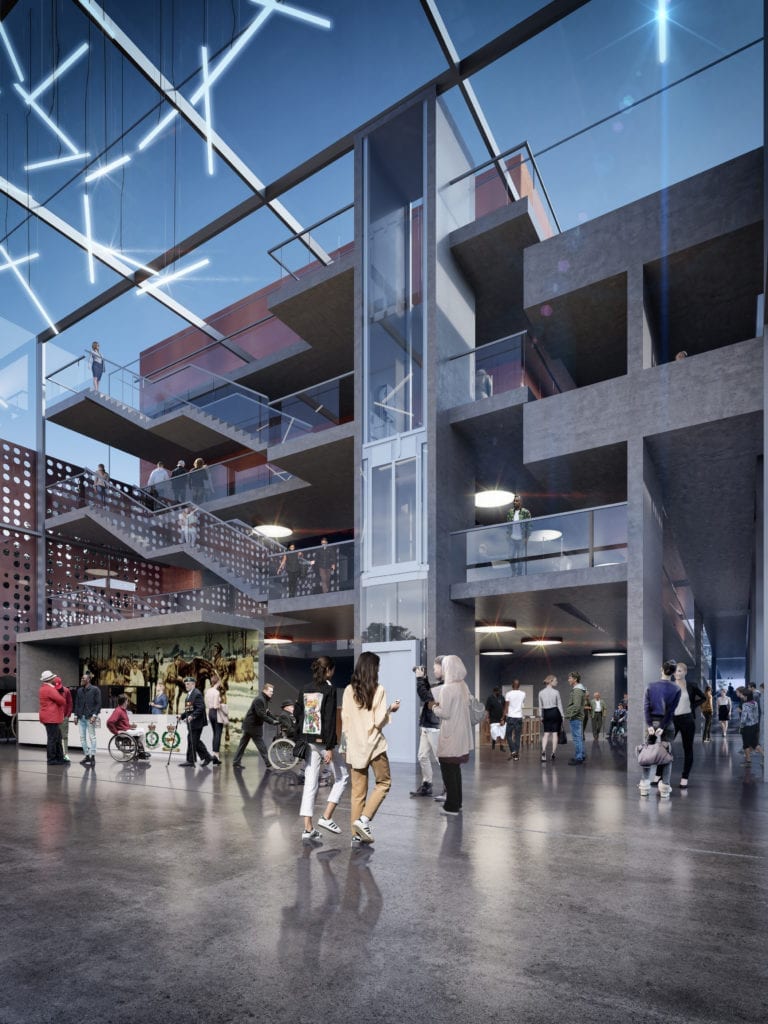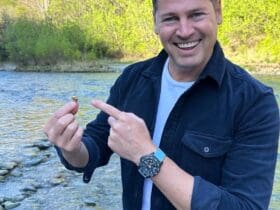A museum looking to relocate to Cardiff Bay aims to bring the UK’s first 8k immersive interactive video space, in addition to the most comprehensive collection of archives and exhibitions documenting the legacy of British military medicine.
The Museum of Military Medicine, which is currently based in Surrey, will also use partnership programmes to develop new lifesaving medical techniques. The Museum explores developments in military medicine, including many that have gone on to be used in hospitals around the world to save lives and provide treatments that improve quality of life and wellbeing.
The Museum tells the story of military healthcare disciplines including medicine, nursing, dental, veterinary and allied health professions, from the civil war era to the current day. Those stories are told though exhibitions, archives and collections that incorporate over 30,000 objects that preserve the heritage of those who have saved lives through service.
A move to Cardiff will also see the Museum engage with the Cardiff Bay community, creating new exhibitions that reflect the history, diversity and culture of Tiger Bay and Butetown in relation to military medicine to ensure the heritage of the area and Wales is a prominent feature of the Museum.
Cardiff’s historical connections to military medicine include the Royal Hamadryad Hospital and before that, HMS Hamadryad, a hospital ship that first docked in Cardiff Bay in 1866. The Museum will gather stories from around Wales, like that of the 130th St John Field Ambulance, a unit that saw trained rescue and ambulance teams from the South Wales coal fields travel to France to save lives in the First World War.
Cardiff and Wales’ links to military medicine continue today with the likes of 203 Field Hospital which is headquartered in Cardiff and has detachments across Wales with many of Cardiff and Vale NHS staff becoming Reservists who deploy overseas.
These historical and current connections are just one of the reasons Cardiff stood out and was selected from the Museum’s national search for a new location. Other key factors included Wales’ thriving life sciences sector and Cardiff’s proximity to several major universities and teaching hospitals that will be key planned partnerships that aim to drive future medical advancements.


Jason Semmens, Director of the Museum of Military Medicine said: “Our decision to bring the Museum of Military Medicine to Wales saw us consider several locations across the UK and Cardiff clearly stood out from all others. Wales’ has a legacy of medical innovation that continues today, Welsh universities are leaders in medical training, and Cardiff Bay’s specific links to military medicine reveal stories that should be told.
“We have always believed that the Museum must reflect the history and diversity of the local community. In addition to providing a new venue for Wales to tell its own stories, the Museum is committed to ensuring the heritage of Cardiff Bay and Wales features heavily.
“We have already commissioned a report from a Cardiff Bay charity that is working to organise an archive of photographs, oral history recordings and other material relating to the culture and history of Butetown, Tiger Bay and Cardiff Docks, that will form the basis of displays within the Museum. But this is just a starting point, we know there are many more stories to tell and we welcome the opportunity for the community to work with us to help ensure this is done correctly.
“We want to work with local residents, schools and businesses to make sure that the community helps shape our plans, which will include meeting with individuals and groups directly, once the easing of current restrictions allow.”
In addition to learning from the past, this Museum will work to drive new healthcare innovations and is already in talks with Welsh health organisations and universities to help root those developments and deliver new services in Cardiff Bay.
One of the aims for the Museum will be to feature an 8k immersive interactive video attraction, Deep Space. This will be the first time this technology has been used in the UK and in addition to creating a new attraction for the Bay’s established tourism sector, this space will be made available for medical training and the development of new medical technologies.
The Museum has already entered discussions with Health Boards and universities within Wales to develop partnerships that can lead to new innovations and programmes that will serve people in Wales and beyond.
There are early stage plans to develop a veterans’ out-patient clinic within the Museum building in partnership with Cardiff and Vale University Health Board and alongside Veterans’ NHS Wales. The plans are being led by Director and Consultant Clinical Lead, Dr Neil Kitchiner, at Cardiff and Vale University Health Board. This would be a space for veterans suffering with service-related mental health diagnoses such as anxiety and depression and PTSD (post-traumatic stress disorder) to receive evidenced based treatment and rehabilitation and linked to other veteran specific charities. It is hoped that services, such as art therapy, delivered at the Museum could also be made accessible to residents in Cardiff and the locality.
Fiona Jenkins, Executive Director of Therapies and Health Science and Armed Forces Champion at Cardiff and Vale University Health Board said: “We are delighted to welcome the Museum of Military Medicine to Wales, especially in the heart of the capital city and within reach of one of the largest hospitals in the UK.
“The Health Board’s commitment to the Armed Forces has recently been highlighted with a Gold Armed Forces Covenant Employer Recognition award.
“Many of our staff are Reservists and are part of 203 Field Hospital. The Museum will show how healthcare and the Military have worked together in the past to shape cutting-edge treatments for the future.”
The Museum is also in discussion with the Museum of Army Music with a view to merging its collections at the proposed Cardiff facility. The combined collection would tell the story of the evolution of military health and music and how both have played a major role in civil society and in particular the life of service personnel and their families around the world.








Leave a Reply
View Comments